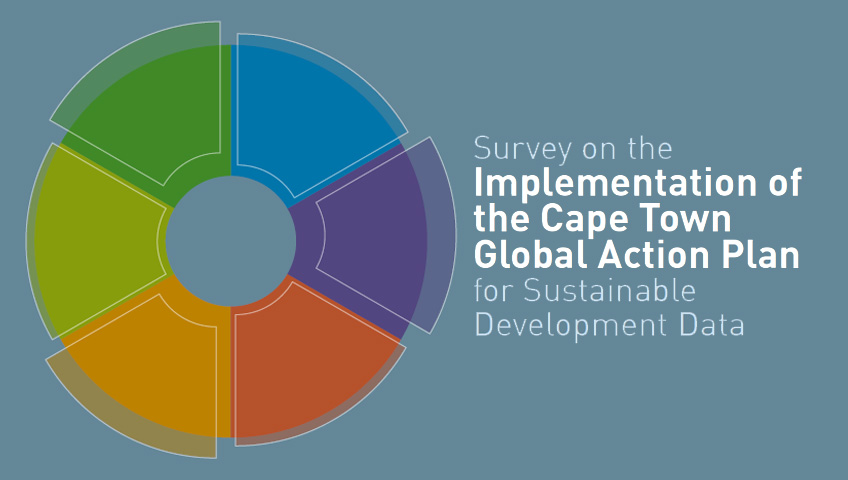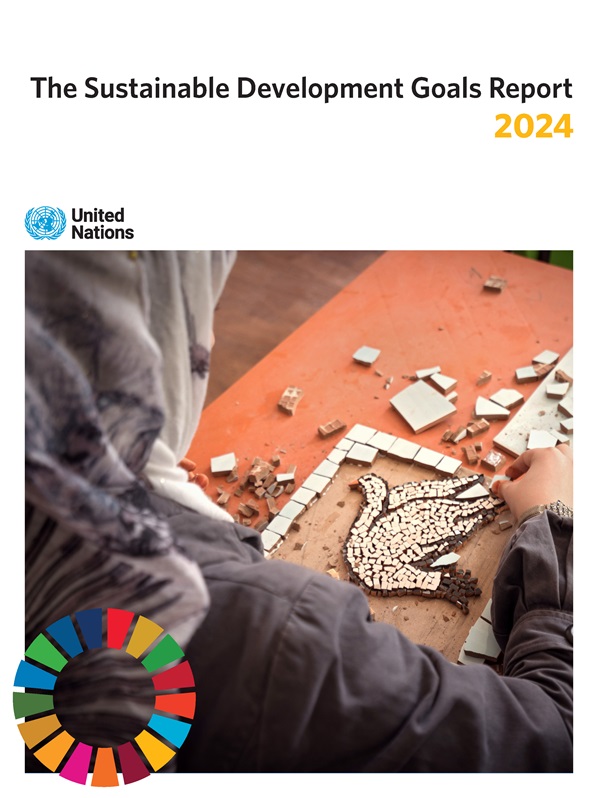Events
International Workshop on Data Disaggregation for SDGs
Inclusion is at the core of the 2030 Agenda for Sustainable Development. Inclusiveness speaks to the notion of empowerment and the principle of non-discrimination and is reflected in the pledge to leave no one behind. To meet the data needs of the 2030 Agenda and address all vulnerable groups, it is important to strengthen national statistical systems to collect and use disaggregated data. In this context, the workshop aims to address some of the challenges faced by the national statistical systems in producing and using disaggregated data to monitor the sustainable development Goals and targets. The workshop is co-organized by the United Nations Statistics Division (UNSD), the United Nations Children's Fund (UNICEF), UN-Women, the United Nations Economic and Social Commission for Asia and the Pacific (UNESCAP) and the Asian Development Bank. It will be held at United Nations Conference Centre (UNCC) in Bangkok, Thailand, from 28 to 30 January 2019.
Resources for participants
Available tools and resources
-
EPIC is a tool for policy-data integration, which can be used as a tool to understand/create need for disaggregated statistics at planning stage: (PDF)
-
WHO health inequality monitoring tools and resources:
- Health equity monitor: https://www.who.int/gho/health_equity/en/
- Health inequality monitoring tools and resources (PDF)
- Health Inequality Monitoring - Peer-reviewed publications (PDF)
- UNESCO: How to measure Equity in Education: http://uis.unesco.org/en/news/new-report-how-measure-equity-education
Presentations
Session 2. Data disaggregation for SDGs
- Data disaggregation and the global SDG Indicator framework, UNSD (PDF)
- Case studies and national experiences in producing disaggregated data
Session 3. Inclusive policy demands and data integration
- A Human rights-based approach to data, OHCHR (PDF)
- EPIC tool for data disaggregation: A tool for policy-data integration, ESCAP (PDF)
- Case studies and experience sharing in national monitoring
Session 4. Exercise session on linking policy demands and data
Session 5. Integrating administrative data sources
- Use of administrative sources for producing disaggregated data, UNSD (PDF)
- Case studies and country examples of use of administrative sources for producing disaggregated data
Session 6. Using census and household survey data
- Presentation on using census for producing disaggregated data, UNSD (PDF)
- Presentation on using household survey data for producing disaggregated data, UNICEF (PDF)
- Case studies and country examples
Session 7. Small Area Estimation method and big data for data disaggregation
- Small Area Estimation method, ADB (PDF)
- Small Area Estimation method and big data for data disaggregation, World Data Lab (PDF)
- Case studies and country examples
Session 8. Gender Equality and Multiple Deprivation Assessment
- Gender data and multi-level disaggregation: an LNOB perspective to SDG monitoring, UN-Women (PDF)
- Case studies and country examples
Session 9. Exercise session
Session 10. Health Equity Assessment
Session 11. Education Equity Assessment
- Information presentation, UNESCO (PDF)
- Case studies and country examples
Session 12. Exercise session
Session 13. Summary session
QUICK LINKS
- 2030 Agenda for Sustainable Development
- SDGs Database
- 2025 Comprehensive Review Process
- Survey on the Implementation of the Cape Town Global Action Plan for Sustainable Development
Data

- SG's progress report 2024
- Statistical Annex 2024
- SDGs report 2024

- Gender Snapshot 2024
- UN Data Commons for the SDGs
-

- Hangzhou Declaration
- Bern Data Compact
- Cape Town Global Action Plan for Sustainable Development Data
- Dubai Declaration
- Global data community's response to Covid-19
- Statistical Commission
United Nations Conference Centre (UNCC)